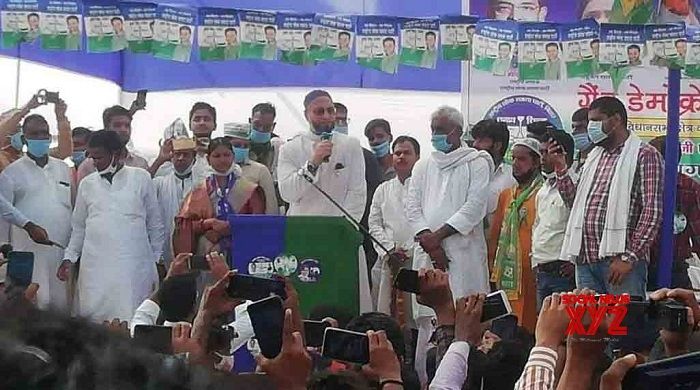There is a raging debate going on since AIMIM won five seats in Bihar. The detractors are blaming the party for coming in the way of Grand Alliance’s victory. However, a section of analysts are leaving no stone unturned to shield Asaduddin Owaisi’s party from such allegations.
The last group are arguing that AIMIM should not be blamed since out of 20 seats the party contested, Grand Alliance won on 9 seats and everyone has the right to test his electoral fate in the democracy.
Asked to comment on the issue, Afzal Hussain, a prominent social activist disagreed with the logic. “It is shrewd spinning of the facts considering the AIMIM triggers polarisation which transcends far beyond the constituencies where the party fields candidates. Consequently, many powerful candidates belonging to secular parties lost sitting seats in the third phase though out of three regions two, Simanchal and Kosi, used to have considerable hold of the Grand Alliance.”
The November 10 verdict showed that Grand Alliance performed very well in the first phase of election as the campaign revolved around the basic issues such as unemployment etc. However, analysts are of the view that after figures such as Yogi Aditiyanath and Assaduddin Owaisi jumped into the fray the election increasingly became communalised. This phenomenon had a cascading effect in the adjoining regions as well.
Thus, in the last leg of the election leaders like RJD stalwart Abdul Bari Siddiqui and Lalu Prasad’s lieutenant Bhola Yadav lost the election. They are among other prominent faces who suffered defeat due to change in atmosphere by the time the third phase of election was held on Nov 7.
It would amount to grave misrepresentation of the fact to cherry pick a few seats such as Keoti where Abdul Bari Siddiqui was the candidate to suggest that Yadav voters did not transfer to the Grand Alliance’s Muslim candidates. Here it should be noted a Muslim candidate in the fray also queered the pitch for Siddiqi.
How can the crucial role of other communities including Yadavs in the victories of Mohammad Kamran from Govindpur, Shamim Ahmed from Narkatiya, Mohammad Nehaluddin from Rafiganj, Akhtarul Islam Shaheen from Samastipur, Ali Ashraf from Nath Nagar etc. be ignored? Do all these seats have decisive Muslim population? In fact, in Govindpur, Kamran defeated JDU’s Purnima Yadav when Muslims are very small in number. Yadavs have a very substantial political clout here.
Fazle Haque, a political activist of Narkatia, in Purvi Champaran from where RJD’s Shamim Ahmad won told this correspondent that virtually every Yadav vote went in favour of the RJD candidate.
While the sitting RJD MLA of Dhaka, which has substantial Muslim population, Faisal Rahman lost from the constituency due to anger of a section of voters against him. One of his associates on the condition of anonymity confided that after winning the previous assembly election Faisal largely remained absent from the region. That is why the verdict went against him.
In neighboring Kalyanpur RJD’s Manoj Yadav won against BJP’s Sachindra Prasad Singh with a close margin of 883 votes even as BSP’s Mohammad Badiuzzaman got 6335 votes.
Moreover, an analysis by The Indian Express revealed that Yadav voted overwhelmingly — 83% percent– in favour of the Grand Alliance in comparison with 76% Muslims. It needs to be mentioned that 11 per cent Muslim votes went in favour of GDSF, of which AIMIM is a constituent. The most important aspect is that NDA got just five per cent vote each of Muslims and Yadavs.
The question is what purpose the community has achieved with the AIMIM winning five seats when Muslims won substantially less seats—19 this time against 24 in 2015. Thus, once again it is proved that AIMIM’s politics is counterproductive to the very objective of Muslim representation that the party claims to fight for.
Besides, AIMIM’s decision to field candidates primarily against sitting Muslim MLAs raises serious questions on the actual motive of their venture.
(Shams Khan is contributing editor at the TheNewsweb)





